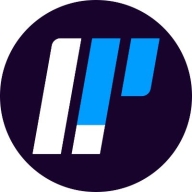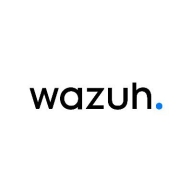

LogPoint and Wazuh compete in the SIEM and SOAR category. LogPoint seems to have an upper hand due to its robust dashboards, AI-driven analytics, and flexible search functionality.
Features: LogPoint offers a fast logging solution with exceptional dashboards and a sophisticated correlation engine. It emphasizes centralized log management, flexible search functionality, and AI-driven analytics. Users appreciate its user behavior analytics and integration capabilities, alongside its cost-effective pricing model. Wazuh stands out with cloud-native infrastructure, versatile third-party tool integrations, and efficient vulnerability detection. Its notable features include integrity monitoring, compliance management, and easy scalability, all offered without licensing fees.
Room for Improvement: LogPoint could improve on resource demands, third-party tool integration, and enhancing cloud-native solutions. Users suggest better log handling and documentation, alongside more customizable dashboards and alerts. Wazuh is critiqued for lacking threat intelligence, limited real-time monitoring for Unix systems, and needing more comprehensive enterprise features. Users seek enhanced scalability, simplified deployment, and better cloud and XDR integration.
Ease of Deployment and Customer Service: LogPoint is primarily deployed on-premises and necessitates substantial infrastructure, with limited off-premises options. While customer service is generally responsive, there are issues with scalability and language barriers. Wazuh, on the other hand, offers both on-premises and hybrid-cloud deployments providing greater flexibility. Support comes mainly from its open-source community, while enterprise-level support incurs additional costs.
Pricing and ROI: LogPoint's fixed pricing model is beneficial for predictable costs, particularly appealing for smaller deployments. However, expenses can rise with complex analytics needs. Wazuh offers a compelling open-source solution with no licensing fees, ideal for smaller organizations. Despite higher initial setup and ongoing maintenance costs, it provides financial benefits for startups and smaller entities.
I have seen value in security cost savings with Wazuh, as using proprietary EDR versions could save us substantial money.
Logpoint's customer support is not sufficient with only one engineer in the US.
The technical support for Logpoint is very good, and I would rate it as nine out of ten.
I recommend a submission to Logpoint because I worked with it before.
They responded quickly, which was crucial as I was on a time constraint.
We use the open-source version of Wazuh, which does not provide paid support.
The documentation is good and provides clear instructions, though it's targeted at those with technical backgrounds.
It is web-based and accommodates the expansion of our organization.
Logpoint is scalable and capable of expanding.
It can accommodate thousands of endpoints on one instance, and multiple instances can run for different clients.
Currently, I don't see any limitations in terms of scalability as Wazuh can still connect many endpoints.
Scalability depends on the configuration and the infrastructure resources like compute and memory we allocate.
I have received reports indicating glitches and downtimes with Logpoint.
The stability of Wazuh is strong, with no issues stemming from the solution itself.
The stability of Wazuh is largely dependent on maintenance.
The indexer frequently times out, requiring system restarts.
Dealing with foreign entities for support was a challenge, leading us to switch providers due to lack of adequate support.
Logpoint needs to be cloud-native, as currently, it is not.
Logpoint's UEBA is a weak point, while Exabeam's UEBA has extra AI through automation.
Machine learning is needed along with understanding user behavior and behavioral patterns.
The integration modules are insufficiently developed, necessitating the creation of custom integration solutions using tools like Logstash and PubSub.
I think Wazuh should improve by introducing AI functionalities, as it would be beneficial to see AI incorporated in the threat hunting and detection functionalities.
I rate the pricing at eight, suggesting it's relatively good or affordable.
Wazuh is completely free of charge.
I would definitely recommend Wazuh, especially considering Fortinet's licensing model which is confusing and overpriced in my opinion.
Totaling around two lakh Indian rupees per month.
The UEBA enables us to monitor at the device level, and SOAR provides playbooks and templates that we can modify and incorporate into the platform.
It effectively facilitates logging and log storage and assists in security event management by ingesting security events.
The most valuable feature, which is endpoint security, is included in Logpoint, and an extra feature is the integration.
Wazuh is a SIEM tool that is highly customizable and versatile.
The system allows us to monitor endpoints effectively and collect security data that can be utilized across other platforms such as SOAR.
With this open source tool, organizations can establish their own customized setup.
| Product | Market Share (%) |
|---|---|
| Wazuh | 10.2% |
| Logpoint | 0.9% |
| Other | 88.9% |


| Company Size | Count |
|---|---|
| Small Business | 18 |
| Midsize Enterprise | 3 |
| Large Enterprise | 4 |
| Company Size | Count |
|---|---|
| Small Business | 26 |
| Midsize Enterprise | 15 |
| Large Enterprise | 8 |
Logpoint is a cutting-edge security information and event management (SIEM) solution that is designed to be intuitive and flexible enough to be used by an array of different businesses. It is capable of expanding according to its users' needs.
Benefits of Logpoint
Some of the benefits of using Logpoint include:
Reviews from Real Users
Logpoint is a security and management solution that stands out among its competitors for a number of reasons. Two major ones are its data gathering and artificial intelligence (AI) capabilities. Logpoint enables users to not only gather the data, but also to maximize both the amount of data that can be gathered and its usefulness. It removes many of the challenges that users may face in data collection. The solution allows users to set rules for collection and then it pulls information from sources that meet the rules that have been set. This data is then broken into manageable segments and ordered. Users can then analyze these ordered segments with ease. Additionally, LogPoint utilizes both machine learning and AI technology. Users gain the ability to protect themselves from and if necessary resolve emerging threats as soon as they arise. The AI sets security parameters for a user’s system. These act as a baseline that are triggered and notify the user if anything deviates from the rules that it set up.
The chief infrastructure & security officer at a financial services firm writes, “It is a very comprehensive solution for gathering data. It has got a lot of capabilities for collecting logs from different systems. Logs are notoriously difficult to collect because they come in all formats. Logpoint has a very sophisticated mechanism for you to be able to connect to or listen to a system, get the data, and parse it. Logs come in text formats that are not easily parsed because all logs are not the same, but with Logpoint, you can define a policy for collecting the data. You can create a parser very quickly to get the logs into a structured mechanism so that you can analyze them.”
A. Secca., a Cyber Security Analyst at a transportation company, writes, “It is an AI technology because it is using machine learning technology. So far, there is nothing better out there for UEBA in terms of monitoring endpoints and user activity. It is using machine learning language, so it is right at the top. It provides that capability and monitors all of the user’s activities. It devises a baseline and monitors if there is any deviation from the baseline.”
Wazuh offers comprehensive security features like MITRE ATT&CK correlation, log monitoring, and cloud-native infrastructure. It ensures compliance and provides intrusion detection with high scalability and open-source flexibility, ideal for businesses seeking robust SIEM capabilities.
Wazuh stands out in security information and event management by providing efficient log aggregation, vulnerability scanning, and event correlation against MITRE ATT&CK. Its capability to integrate seamlessly with environments, manage compliance, and monitor files makes it suitable for cloud-native infrastructures and financial sectors. Despite its technical support needing enhancement and opportunities for improving AI integration and threat intelligence, its open-source nature and cost-effectiveness make it appealing. Users can leverage custom dashboards powered by Elasticsearch for precise data analysis, even though there is a desire for a more user-friendly interface and better enterprise solution integration. Deployment may be complex, but its features contribute significantly to fortified security postures.
What are the essential features of Wazuh?Industries like finance and cloud infrastructure heavily utilize Wazuh for its security strengths. By monitoring endpoints and ensuring compliance with frameworks, companies can improve security posture and swiftly detect anomalies. The platform's focus on event correlation and alerts for security incidents is particularly beneficial.
We monitor all Security Information and Event Management (SIEM) reviews to prevent fraudulent reviews and keep review quality high. We do not post reviews by company employees or direct competitors. We validate each review for authenticity via cross-reference with LinkedIn, and personal follow-up with the reviewer when necessary.